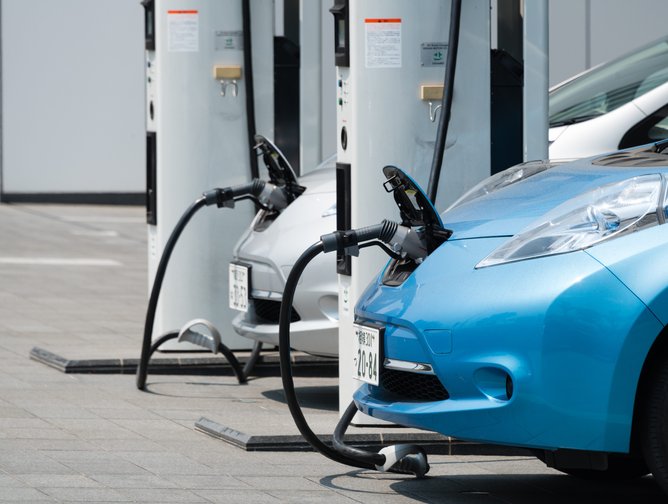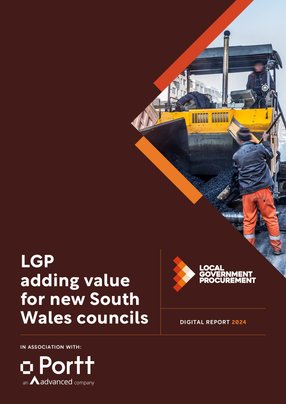Local Government Procurement (LGP) is an organisation that provides procurement services for the New South Wales (NSW) local government, which consists of 128 councils across the state.
It’s a huge undertaking, with the total amount of spend on suppliers hitting the $13bn mark every year. To put this into context, Australia’s four largest banks spend around $5bn on suppliers – and that’s the private sector.
“At $13 billion, we have one of the largest supplier bases anywhere in the country,” says Anubhav Madan, LGP’s Head of Procurement.
As a wholly owned subsidiary of Local Government NSW, LGP was established to help member councils acquire goods and services as efficiently and cost effectively as possible.
Each year, LGP saves NSW councils millions of dollars in the procurement of goods and services through negotiated pricing and bulk purchasing power. In FY23, LGP’s services have delivered an estimated AU$76mn in efficiency savings.
LGP brings value-add to local authorities
But LGP’s focus is not solely on delivering the best possible value for money on sector-specific solutions, but also on streamlining access to reputable suppliers and helping minimise procurement risk for councils.
The day-to-day difference these services provide make the job hugely rewarding, says Madan.
“In the private sector you're working for a shareholder, and every time you create value for the company it goes to the bottom line,” he says. “But in the public sector you're building community value. Any money you save, or value you create, goes into building a new community centre, a new library, a new road, and there's a different level of fulfilment that comes with that.”
Madan says that recently, LGP worked with a particular council on a project to change the street lighting to LED.
“With a million dollars a month freed up in cash flow, they were able to create a new park, and also extra funding for a road repair,” he says. “That's the sort of difference that you can make through good procurement in the public sector.”
“The base procurement services are centralised contracts with standardised terms and conditions for the benefit of all councils,” Madan adds. “By aggregating these we are able to get preferential rates through economies of scale, saving precious time in the tendering process, while ensuring compliance with their legislative obligations. We also provide consulting services to help the sector deliver complex outcomes and training services to improve their procurement skills.”
LGP provides a raft of consulting and training services
LGP’s consulting services encompass issues such as probity, governance, auditing and legislation compliance. The advice is complemented by a range of business tools, including procurement management resources with guidelines and benchmarking materials.
“As a registered training organisation, we also deliver training,” he adds, “including various accredited courses to help procurement professionals achieve new qualifications.
“We also run a series of annual events, where we impart information and knowledge from the procurement sector, as well as knowledge from our supply base.”
Because LGP offers just a raft of services it requires teams of specialists.
“I have a team that manages all the contracts, and another team that sets up the contracts,” reveals Madan, who says he also has a legal team that looks at legal issues, both in tendering as well as on the contract management side of things.
“Then there is the Supplier Relationship Manager, who manages our pyramid of suppliers and makes sure we are engaged with them, and they're engaged both with us and the sector. This helps reduce costs, improve quality, innovation and customer satisfaction,” he adds.
Pandemic has changed LGP for the better
Madan joined LGP around three years ago, during which time he says the difference in the company now compared to back in 2019 “is like night and day”.
“When I joined it was very process driven, focusing very much on delivering a contract, and moving on to the next contract,” he says. “There wasn't that much thought given to why the processes were the way they were.”
Now, though, he says LGP is a much more strategic and agile organisation.
“People think deeply about whether contracts should be awarded, plus we not only have an understanding of what customers are actually buying but also the real needs of customers. We are able to say if a contract is really serving them.”
A big change in those three short years is also that ESG priorities have changed for local government.
“ESG and sustainability has increased hugely in importance in the local government sector,” says Madan.
Sustainability becoming local government focus
This, he says, is because local government is the closest tier of government to the community, and people have been asking for more sustainable outcomes.
“Because of this, councils and the whole sector have become more and more focused on sustainable outcomes,” explains Madan. “For example, many councils are rolling out food and organic waste bins.”
Although LGP has had a sustainability team in its organisation for some time, Madan says it has only been relatively recently that they have become central to what local authorities want to do.
“Whereas before the Sustainability team struggled to get their message heard, now they're inundated with calls and queries about how they can help this or that council to achieve their ESG targets,” Madan reveals. “Queries might be about emissions reductions, waste, or even modern slavery.
But it is carbon emissions on which NSW local authorities are most focused.
“Almost every council has some kind of a net-zero target, and they’re very focused on putting initiatives in place to deliver on those targets,” Madan says. “Emissions reduction is one of the primary ESG focus areas for councils because people in their local community want to see responsible management of the natural environment for future generations to enjoy.
“Until a few years ago, more than 80% of the state's energy was derived from fossil fuels, but now the past 12-month average is 70%. I expect the next 12 months to be at 60%, and in another couple of years it will further reduce significantly.
“So the change is quite rapid, and every council out there wants to make sure that they are on the green side of energy, rather than the black side.”
Local councils leading Australia net-zero charge
Madan also points out that many NSW local authorities want to be seen to be leading the net zero charge.
“I think local governments are much faster at that transition than the federal or state government,” he observes.
Madan says that his category manager for energy is “always looking at different ways to help councils set up contracts that allows them to transition to green energy, as well as deploy energy-saving initiatives”.
He adds that LGP is also helping to support wind and solar farms.
“We have one solar farm that was commissioned specifically for local governments,” he says. “One of our suppliers created a single solar farm solely for our councils.”
LGP has also built a sustainability toolkit that it shares with councils, to help them get started on their sustainability journey. It has proven very popular.
“We use dashboards to glean insights around contract and supplier performance; this helps us investigate what's working and what's not working,” says Madan. “We are also looking at building dashboards that can compare one council with another, in terms of outcomes they've been able to deliver. The idea is to showcase best practices from the sector at our events so everyone can benefit.”
Partner ecosystem vital for LGP
With such a vast supplier network in place, it is no surprise that the partner ecosystem is hugely important to LGP as a company.
As part of its supplier relationship-management programme it has segmented its supply base into multiple tiers, and it meets with specific suppliers on a quarterly basis. Madan says that, together with its suppliers, “we plan how to partner with them on improving outcomes in the sector as a whole”.
“There are many initiatives that have come out of this,” Madan continues. “For example, webinars around how energy markets are going to change, and how every council can prepare to be a part of that change.”
He reveals that LGP is also looking at establishing a technology grant fund that allows councils to access money from tech providers, to help them implement digital transformation initiatives.
“What we do with our partner network – especially at the top end – is ensure they're engaged and are helping the sector achieve more for the benefit of the people of New South Wales,” Madan says.
One of LGP’s newest partners is Portt – an Advanced company – who provide an intelligent procurement, contracts and supplier management platform.
Madan says: “Portt will provide our contract lifecycle management system, which is essentially our nerve centre. This is where we can store contracts and where we can automate multiple processes around contracts to make sure they're always relevant to a supplier.”
Madan explains that, once a contract is in the system, LGP has an automated surveys that go out to suppliers and customers that helps monitor and measure the KPIs developed for suppliers.
“There's performance-feedback dashboards built for supplier performance meetings,” he says. “The Portt software application takes procurement contract management best practice and helps us build it into a seamless, efficient machine so that we can focus on the more strategic aspects of our jobs.”
Make sure you check out the latest edition of Procurement Magazine and also sign up to our global conference series - Procurement & Supply Chain LIVE 2024
**************
Procurement Magazine is a BizClik brand






